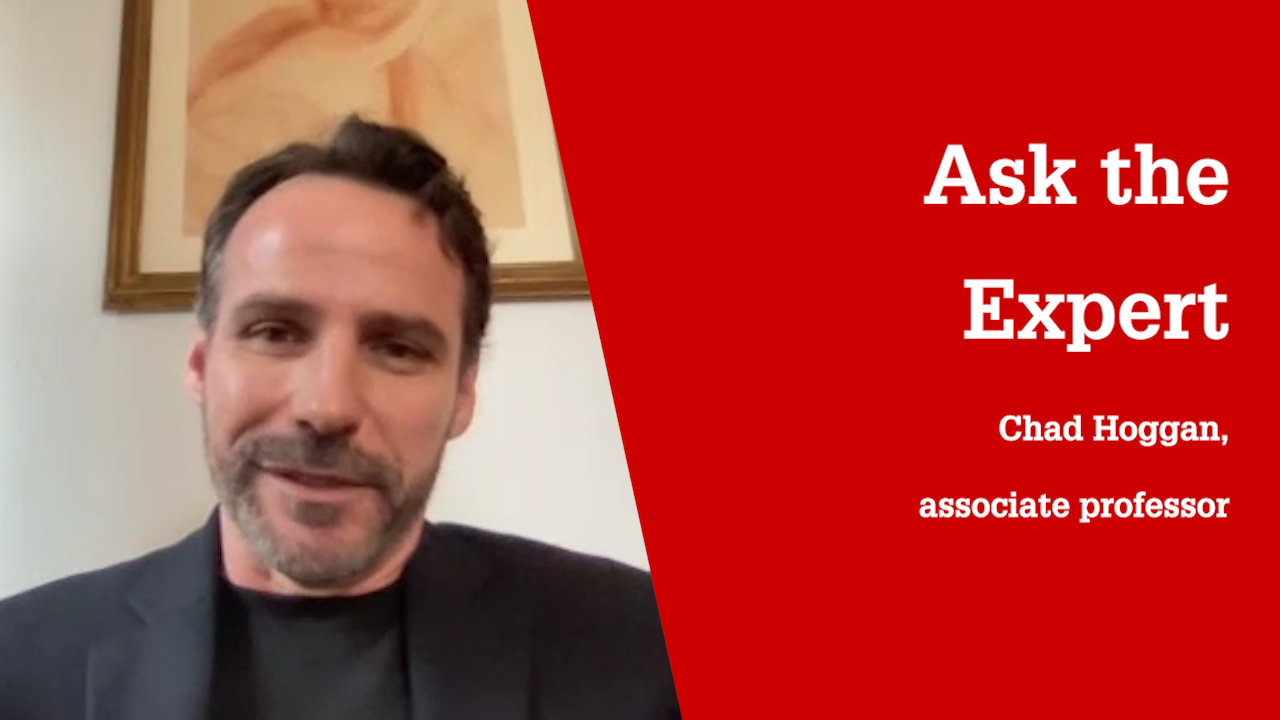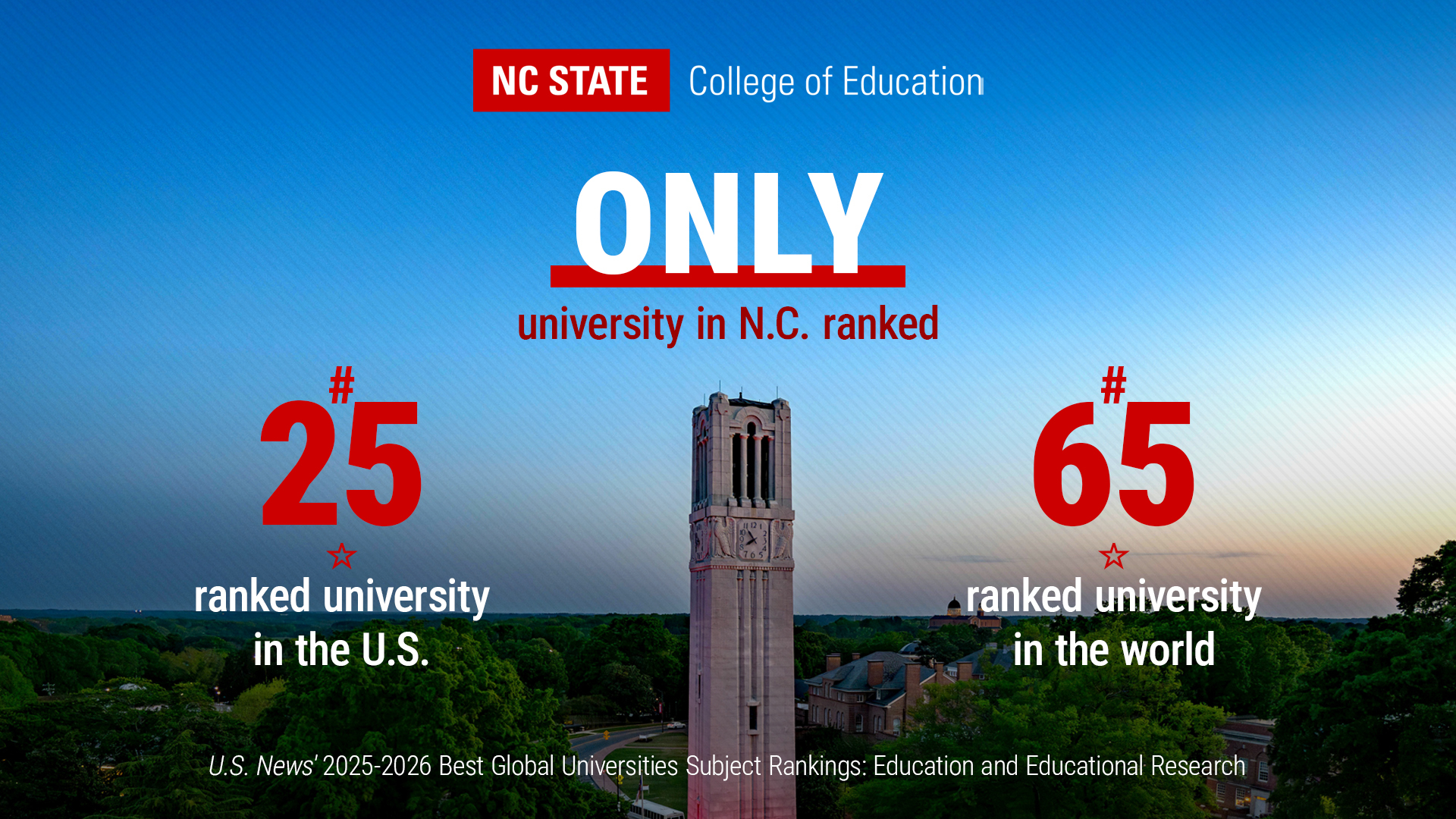How Can Educators Support Students Through Transformative Learning Experiences? ‘The Difference Between Learning That Really Changes Us for the Better and Learning That Has Little Impact is Often Tied to the Extent to Which We Exercise That Learning,’ Says Associate Professor Chad Hoggan
Education can lead to significant changes in the way a person thinks, feels and acts. These changes, says NC State College of Education Associate Professor Chad Hoggan, can yield vastly different outcomes, which makes it important for educators to understand how the processes they promote in their teaching influence people’s trajectories of change.
Hoggan’s research focuses on transformative learning, or the learning processes involved during major personal change. He also developed the Typology of Transformative Outcomes to provide a more comprehensive way of understanding all the ways that people might change.
Understanding transformative learning, he said, can help educators understand not only sudden and major transformations, but understand trajectories of small, personal, organizational or societal changes.
“When people change, there’s also inevitably a change in behavior one way or another and a change in their capacity [to do certain things],” said Hoggan, who has studied transformative learning among cancer survivors, military veterans, radicalized groups, migrants and adult learners. “There’s a big difference between transformations leading to more complex, nuanced and empathetic views of the world and transformations that create violent extremists.”
Transformative learning can happen through a variety of experiences, both positive and negative. Experiencing a major illness, or the death of a loved one, losing a job or even getting a promotion that causes a person to see themselves differently can all be catalysts for major personal change.
Institutions of higher education, Hoggan said, can also often be a place where people undergo transformational learning.
“It exposes us to new points of view and a wider variety of people than perhaps we’d experienced before,” Hoggan said. “In the course of college, a lot of times people also go on a study abroad program, and travel is another type of experience that just opens people’s eyes to the things they had been blind to or maybe the things they had taken for granted.”
Transformative Learning Challenges in Higher Education
Although many community colleges in areas of North Carolina that are considered economically depressed offer programs that train people for available jobs in the region, attendance is often lacking. And, even when community members do attend these programs, they often don’t complete them.
Hoggan believes one of the contributing factors to this phenomenon is that students are experiencing transformational learning challenges related to issues like belonging and self-efficacy.
Students, especially first-generation college students, often question whether or not they really belong at a higher education institution. Sometimes they deeply question whether they are even capable of earning a degree or have trouble envisioning themselves as a professional in a given field.
“There are moments in all of our educational careers where we’re really struggling to learn a particular thing or we’re just overwhelmed, but there’s a big difference if I have a belief that if I put in the time and I try, it’ll matter,” Hoggan said. “When students, deep in their bones, feel that no matter how hard they try, it’s not going to matter, that they can’t learn it or they don’t belong…those represent additional learning challenges that are incredibly difficult, and they’re on top of the curricular learning challenges they’re having.”
Supporting Students Through Transformational Learning
There are two approaches that Hoggan believes are useful for educators as they help students through transformative learning experiences and challenges.
The process-oriented approach is when educators realize there are certain skills students can learn and get into the habit of using to have immediate and long-term effects on their lives. These skills might include critical thinking, learning to be self-reflective, questioning what they take for granted, and practicing open-mindedness or empathy.
As educators, Hoggan said, it’s important to help students develop the habit of using such skills both inside the classroom and in their everyday lives. For example, educators want students to not only be able to use critical thinking skills for classroom assignments, but in the real world when interacting with things like social media or the news.
“The difference between learning that really changes us for the better and learning that has little impact is often tied to the extent to which we exercise that learning in all of the contexts of our lives,” Hoggan said. “If we’re taking a process-oriented approach, then we can focus on helping students practice important new skills outside of the classroom, whether that’s critical thinking or empathy, to make connections with their life outside school.”
The adaptive approach, meanwhile, requires educators to recognize when students are likely facing transformative learning challenges because they are in the midst of some type of major life transition or change—and find ways to explicitly support learners through them.
For example, with issues of belonging, educators can examine the way their classrooms are decorated and designed, and the way their programs are marketed, to make sure they reflect the student population. With issues of low academic self-efficacy, Hoggan suggests creating programs that bring in “early wins” so that progress is quick and noticeable in the beginning of a course or semester to increase students’ confidence by helping them to see that they can learn.
“We can also create a system of fading supports, where there’s a lot of support in the early stages of a program or semester and they slowly fade away over time as students get better and better at what’s required of them,” Hoggan said.
Hoggan cautions against taking a prescriptive approach to transformative learning, in which educators decide the ways in which learners need to change. Although he says the approach can, in certain cases, be appropriate, better methods are those in which the student’s desires in regard to change are taken into account.
“I think there’s an element of human dignity, which is somebody’s right to autonomy and to not be transformed or changed in a major way based on what somebody else wants,” he said.
Video by Ryan Clancy
- Categories:



